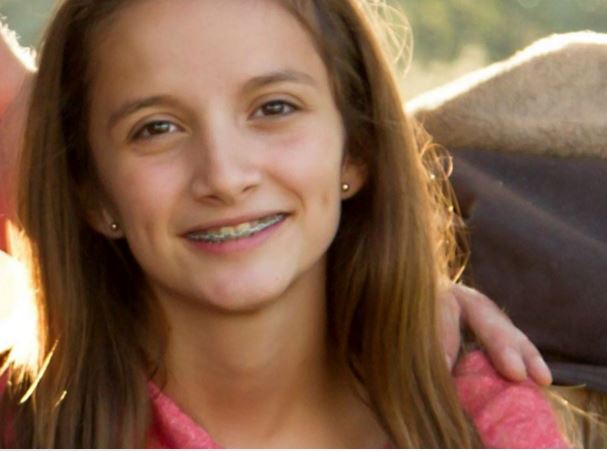Parents shine light on suicide
David and Norma Walker started a website to tell their daughter’s story. Photo courtesy of the Sadie Walker Foundation.
November 15, 2015
For David and Norma Walker of Garland, TX, Christmas 2014 started early, just like it does for so many other families. Their four children raced to open their gifts. The stockings were stuffed, and their children smiled as they sat on the floor near the Christmas tree, unwrapping packages.
Sadie Walker, their oldest child, was 15 years old. She got everything she wanted, including a new skateboard which she immediately asked to ride. Her father gave her permission to go outside.
When she didn’t come back right away, her parents became worried. They couldn’t find her anywhere; their concerns grew when she didn’t answer her cell phone. With each passing minute, they grew increasingly frantic. The parents called 911, and police traced Sadie’s cell phone to an isolated spot near the family’s home.
She had killed herself. Her cause of death was suicide by asphyxiation. The Walkers say Sadie had shown no signs of depression and never gave the smallest hint that she was suicidal. Sadie played on the golf team at Richardson High School, was a good student, and wanted to be a doctor when she grew up. According to CNN, her golf coach, Lyndal Weaver stated, “I couldn’t believe it when I learned what Sadie had done.”
Struggling for answers, her parents searched her cell phone and learned she had been on the phone with a male classmate at the time she died. “He was on the phone with her for 37 minutes,” her father said. “That call culminated with Sadie dying. And he listened to her die.”
But the phone call raised more questions than it answered, and Sadie’s parents said the boy and his parents have never given them any further details. They soon learned another startling fact: Sadie had secretly set up an account on the social media platform Instagram just a few weeks earlier, and had begun talking to other young people about depression and suicide.
While the family prepared for Sadie’s funeral, Weaver helped search through her Instagram messages. Sadie’s parents couldn’t believe what they read. As quoted by Weaver on DentonRC.com, “It’s just a group of kids — depressed kids — talking to other depressed kids, about depression, all day long, and she just got dragged into it.”
They discovered that perhaps a handful of Sadie’s classmates were also involved in the online chats, including the boy who was on the phone with her when she killed herself.
Kids knew what was happening and not once did they go to a counselor, a teacher, or Sadie’s parents. It’s unclear why none of Sadie’s friends ever warned an adult, but her parents said some of them were also depressed and appeared on the verge of taking their own lives.
So, amid their grief, her parents and coach urgently tried tracking down the other teens, some of whom used screen names and could not immediately be identified. Instagram, they say, was no help. The Walkers reached out to the other parents. According to wfaa.com, some of the classmates were admitted to a hospital for treatment and seem to be better now.
Now, the Walkers want their grief and frustration to turn into something good. They want social media sites to better monitor and close chat rooms that encourage suicide. And they want to share Sadie’s story with young people to encourage them not to be afraid to talk to adults. Sadie’s parents have set up a website to tell her story and, they hope, save lives and prevent other parents from experiencing the same ordeal.
To visit the website and view Sadie’s story, go to http://www.sadiewalkerfoundation.org/.
In the Joliet West Community, counselors are always available to assist students in any way possible. The National Suicide Hotline number is (800) 273-8255.


